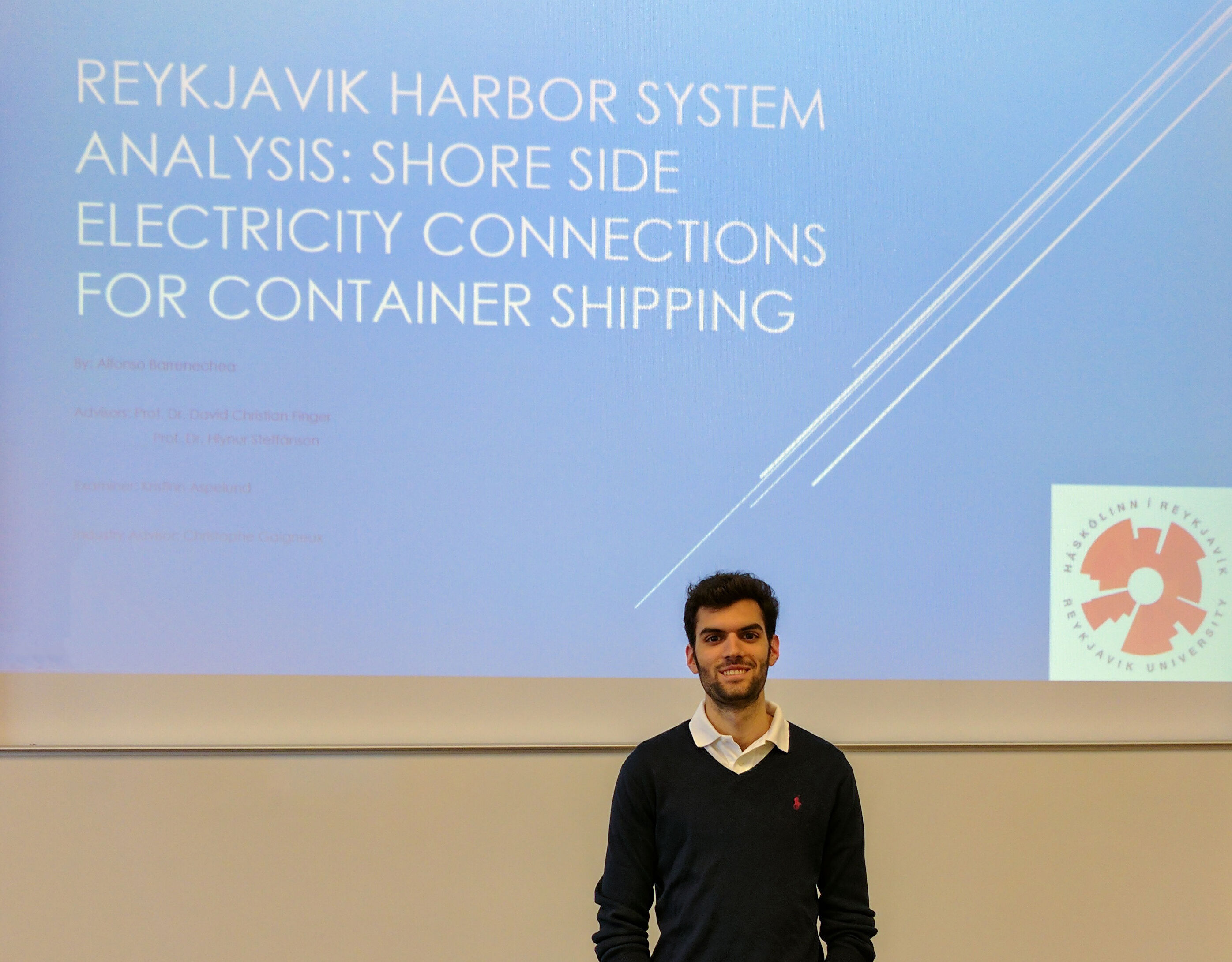MSc Thesis: Reykjavik Harbor System Analysis - Shore Side Electricity Connections for Container-ships in the Eimskip Terminal
Alfonso Barrernchea successfully defends his master's thesis
REYKJAVIK, May 30 – Master's candidate of Sustainable Energy Sciences, Alfonso Barrenechea, has just successfully delivered his master's thesis project focusing on shore side electricity connections for container-ships in the Eimskip terminal. Throughout his work, Alfonso was supervised both by Dr. David Finger and Dr. Hlynur Stefánsson here at Reykjavik University.

Alfonso concisely describes the rather complex problem. To start, vessels at berth burn marine gas oil in the auxiliary engines to power the ships electrical system. Vessels remain at berth an extended period of time, ranging from 12 to 72 hours, meaning that fuel is being constantly burned at the harbor near densely populated areas.
Shore Side Electricity aims to remove the pollutants created from auxiliary engines at the harbor by directly connecting the vessels to the local electricity system. As fuel prices increase due to stringent maritime regulation, the price to power a ship via shore side electricity will be cheaper than through conventional berthing fuels. The Reykjavik harbor gets fed cheap low carbon energy from the Icelandic energy mix that could in turn produce a cleaner and more profitable harbor.
Alfonso's project analyzed the technical, environmental, and financial aspects related to shore side electricity at the Eimskip terminal. By analyzing the schedules, fuel consumption patterns, and power demands of the three trade lines that visit the Eimskip quay the most per year (each line made of two vessels) an estimated emission factor as well as an estimated net present value was calculated.
Three potential retrofit scenarios were presented throughout Alfonso's project, each with a detailed emission total, net present value, as well as recommendations for how to retrofit low voltage vessels in accordance to international Shore Side Electricity standards ISO-80005. Alfonso concluded with a final dollar figure on the price per ton of CO2 equivalent abated from the Reykjavik harbor and compared it to other Icelandic projects.
Lastly, if Shore Side Electricity is up-scaled from the six vessel study to the estimated sixty six container-ships
calling to Reykjavik per year the emissions saved would surpass that of an
Icelandic electric car fleet, and do so in a more cost efficient matter.
Congratulations Alfonso on an excellent thesis!
